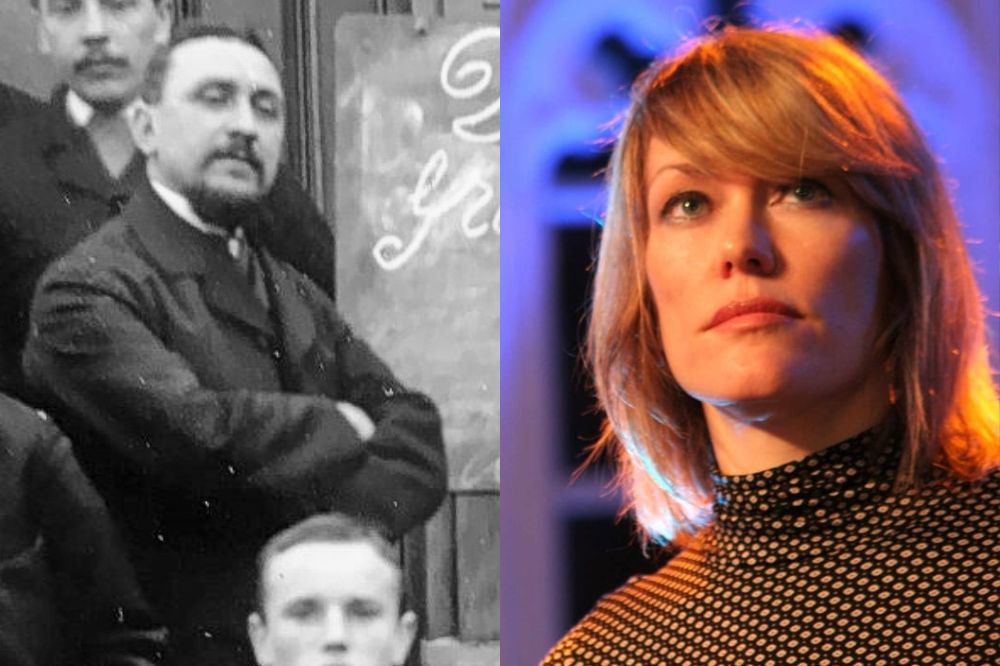Learn to sing Calon Lân with Welsh language learning app

Stephen Price
Welsh language learning app innovators, SaySomethinginWelsh have created a free mini course to help people learn the Welsh classic Calon Lân – often considered Wales’ second national anthem.
According to the developers, you can master and understand the beautiful words of Calon Lân in just 2 short lessons with their free mini course.
Add to that, they have provided some incredible history behind its writer, Daniel James and composer, John Hughes.
The makers also give some history on how the rousing song came to become a rugby favourite – a must read for anyone who has tried and failed to learn the words in the past.
Easy steps
SaySomethinginWelsh say that their methods will allow you to ‘become more deeply connected with the words than ever before by making them part of you, whilst experiencing a radical new way of learning’.
Daniel James was born on 23 January in 1848 in Treboeth, Swansea. He began his working life at Morriston ironworks, and afterwards worked at Landore tinplate works.
Daniel James began to write verse and assumed the bardic name Gwyrosydd (probably meaning “place of privets”). He later found work in Tredegar, Dowlais Ironworks, Blaengarw, and Mountain Ash, where he spent 20 years.
Welsh favourite
“Calon Lân” (meaning ‘A Pure Heart’) began life as a Welsh hymn, the words of which were written in the 1890s by Daniel James and sung to a tune by John Hughes of Penybryn, Pembrokeshire.
Whilst originally written as a hymn, it has become firmly established as a rugby anthem, associated with the Welsh rugby union, being sung before almost every Test match involving the Welsh national team – though more likely to be heard sung at matches involving the Welsh football team in recent years.
Calon Lân
Nid wy’n gofyn bywyd moethus,
Aur y byd na’i berlau mân:
Gofyn wyf am galon hapus,
Calon onest, calon lân.
Calon lân yn llawn daioni
Tecach yw na’r lili dlos:
Dim ond calon lân all ganu,
Canu’r dydd a chanu’r nos.
Pe dymunwn olud bydol,
Hedyn buan ganddo sydd;
Golud calon lân, rinweddol,
Yn dwyn bythol elw fydd.
Hwyr a bore fy nymuniad
Gwyd i’r nef ar adain cân
Ar i Dduw, er mwyn fy Ngheidwad,
Roddi i mi galon lân.
Translation
I don’t ask for a luxurious life,
The world’s gold or its fine pearls:
I ask for a happy heart,
An honest heart, a pure heart.
A pure heart full of goodness
Is fairer than the pretty lily:
None but a pure heart can sing,
Sing in the day and sing in the night.
If I wished for worldly wealth,
It would swiftly go to seed;
The riches of a virtuous, pure heart
Will bear eternal profit.
Evening and morning, my wish
Rising to heaven on the wing of song
For God, for the sake of my Saviour,
To give me a pure heart.
Cerys Matthews version
Singer songwriter, Carys Matthews agreed to perform three songs for veteran comedian Max Boyce’s St David’s Day TV special, which was recorded at the BBC’s Cardiff studios on Sunday 6 January 2002.
Cerys sang ‘Calon Lân’ along with ‘Bachgan Bach O Dincer’, as well as Ivor Novello’s ‘Keep The Home Fires Burning’, for a small studio audience picked from a local college.
She was backed by harpist Elinor Bennett – who has previously played with Cerys on the TV show ‘TFI Friday’ and on an earlier Catatonia album track called Bulimic Beats – and banjo player Les Morrison.
She agreed to appear on the programme after meeting producer Chris Stuart, who wrote the music to the soundtrack of Welsh children’s programme ‘Sali Mali’.
He said: “She was fantastic – she chose completely unexpected songs and made each of them her own. I think the audience realised they were witnessing something special.”
And comedian Max added: “I could not have hoped for a better guest. I am a huge admirer of Cerys and always have been.”
Find the SaySomethinginWelsh course here.
Support our Nation today
For the price of a cup of coffee a month you can help us create an independent, not-for-profit, national news service for the people of Wales, by the people of Wales.






